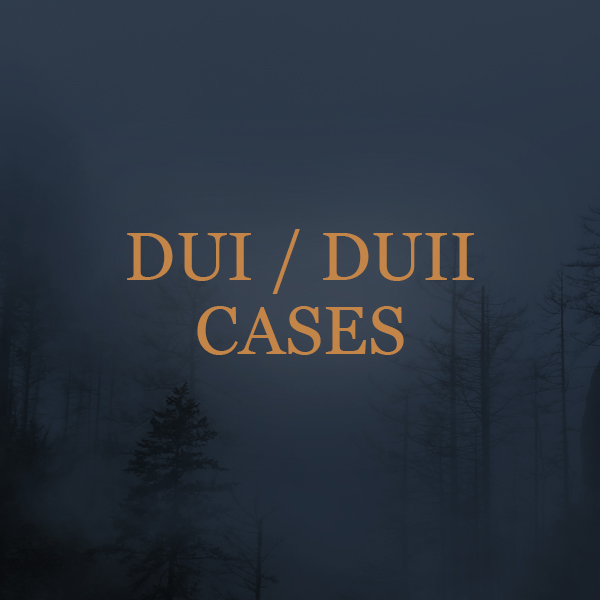Are you or a family member in need of a Eugene criminal defense attorney?
At Veralrud and Fowler we have an amazing success defending clients facing criminal charges.
As experienced Eugene Oregon lawyers we are committed to ensuring that your rights as a defendant are not infringed upon.
We have found after years in practice as Eugene Oregon lawyers that the average person is unaware of their basic rights as stated in the fourth, fifth, sixth and eighth amendments.
These amendments were put into place to protect all citizens and are important to know should you or a loved one be facing criminal charges.
Below we have explained in layman’s terms the rights all citizens have as stated in these amendments.
The Fourth Amendment
The Fourth Amendment was created to protect citizen’s right to privacy.
From unlawful search and seizure to illegal surveillance this amendment was put in place to protect your natural right to privacy.
In the eyes of the US government all people have an inherent right to privacy.
This amendment follows the principle that your home is your castle, and therefore, has an expectation of privacy. This extends to your person and other property.
This amendment was created to be a safeguard against unwarranted search and seizure.
No law enforcement agent or government official has the right to come into your home, commence a search and seize your property without a warrant.
Before the United States officially became a nation the English government was allowed to execute searches without a warrant which became a major abuse of power.
Soldiers or law enforcement officers would perform searches at their own discretion without the presence of a warrant or proof that a crime was even committed.
The fourth amendment is designed to ensure that this does not occur.
Law enforcement officials must obtain a warrant first and in order to so they must present the judge with probable cause that a crime has been committed.
If you feel that your Fourth Amendment rights have been violated it is crucial that you hire a Eugene Oregon attorney to defend you.
You Have a Right to Privacy
Your right to privacy also extends to not be unlawfully surveilled.
Law enforcement must obtain a warrant to employ the use of phone taps, hidden cameras or other forms of surveillance.
If these forms of surveillance were used without going through the proper channels and obtaining a warrant any proof that a crime was committed would be inadmissible in court and unable to be used against you.
Once again, in order to obtain a warrant probable cause must be presented to the judge.
Without probable cause it would be unlawful to issue a warrant but the definition of probable cause is vague at best.
The right Eugene lawyer can help protect you from searches without probable cause by fighting for your Fourth Amendment Rights.
Probable cause is not clearly defined in the fourth amendment and is somewhat open to interpretation.
In order to obtain a warrant there must be sufficient cause to believe that a crime has been committed.
The officer requesting a search warrant must show that there will likely be proof that a crime has been committed in the area they wish to execute a search.
The judge cannot go merely off instinct or opinion. The law enforcement officer must have proof to support the warrant.
Since there is no clear definition of probable cause it is left in the hands of the judge to determine whether there is sufficient proof that a crime has been committed, and therefore, a warrant justifiable.
Should you ever find yourself in a situation where a search warrant has been issued to you it is vital that you hire the right Eugene criminal defense attorney.
Grand Jury's and Trial Jury's in Eugene
The Fifth Amendment covers three specific rights that all citizens have, the first being that any person facing capital charges must have their case appear before a grand jury.
The difference between a grand jury and a regular jury are the size and purpose.
A grand jury has between 12 to 23 people while a normal jury has between 6 to 12 people.
The purpose of a grand jury is to determine whether there is probable cause to support charging someone with a capital offense or major crime.
Unlike with lesser crimes, the severity of the crime requires that before charges are made it must be determined by a grand jury whether there is sufficient proof to bring such serious charges against someone.
However, a regular jury is used for an actual trial.
They are responsible for determining whether or not someone is guilty of a crime and, if guilty, what sentence they should face.
A person facing capital charges will face both juries, the grand jury first and then a trial jury to determine guilt or innocence.
Should you ever find yourself facing either type of jury it is key to your defense to have the very best Eugene criminal defense attorney.
The Fifth Amendment also states that a person cannot face double jeopardy, or be tried twice for the same crime.
Should someone be tried for a crime and then determined innocent that judgement is final.
Even if evidence is found after the fact that can prove that they were guilty it is considered too late, they cannot be tried again.
A verdict of not guilty is final and cannot be contested. Your Eugene Oregon criminal defense attorney will be able ensure that your verdict treated as such.
The fact that a person will not face double jeopardy also ensures that they will not be given multiple sentences.
Once someone is found guilty of a crime they are given one sentence to carry out.
This may have multiple parts such as fines, jail time and required parole but once the sentence is decided it cannot be added to.
The guilty party will serve that one sentence and they cannot be charged with the same crime again or face an additional sentence based on that same crime.
As your Eugene Oregon lawyers we will ensure that you are not a victim of double jeopardy.
Your Rights Not to Testify Against Yourself
The third right in the Fifth Amendment is the right to not be forced to testify against yourself.
Under the Fifth Amendment you are protected from self-incrimination.
You cannot be forced to take the stand and testify against when you are put on trial.
You have the right to refuse to testify as stated under this amendment, but should you choose to testify, once you are sworn in you are required by law to answer truthfully.
No judge or prosecutor can legally require you to testify against yourself. This section of the Fifth Amendment protects you from being forced to self-incriminate and is your inherent right as a US citizen.
Hiring the right Eugene Oregon attorney will help ensure that your Fifth Amendment rights are not infringed upon during the trial process.
The Sixth Amendment also contains rights that are pertinent to those facing criminal charges.
The Sixth Amendment has several aspects, the first being that you have the right to a trial without unnecessary delay.
Trials can be time consuming but they must proceed on a reasonable timeline. Depending on the severity and complexity of the crime trials have very differing timetables.
However, the trial must not be delayed or made to drag on without sufficient cause.
Both the prosecution and your Eugene criminal defense attorney will be given sufficient time to build their case and employ the use of investigators in order to find evidence that supports said case.
Should the prosecution or your Eugene lawyer need more time they will have to present their request to the judge and their reasons for the delay.
It is up to the judge to either grant or deny their request.
You have the right to a trial without unreasonable delay and having the right Eugene criminal defense attorney on your side to ensure this is vital.
Hire a Criminal Defense Attorney in the Eugene Area
The Sixth Amendment also states that should you be accused of a crime you have the right to a lawyer whether you can afford one or not.
Should you be unable to hire your own Eugene Oregon attorney the court will appoint one for you.
This ensures that even the poorest of people do not face a trial without representation.
Court appointed Eugene Oregon lawyers are employed for that very purpose, to defend those who do not have the money to hire their own Eugene lawyer.
The down side of this is that these court appointed Eugene Oregon lawyers have heavy caseloads and often are unable to give your case the undivided attention needed.
Hiring your own Eugene criminal defense attorney is often a better choice simply because they can offer your case their full attention.
By hiring your own Eugene Oregon attorney you’ll also be able to select a Eugene lawyer who has experience with cases similar to yours.
No matter your situation, this amendment ensures that you’ll have legal representation.
Another right, as stated in the Sixth Amendment, is the right to an impartial jury.
You have the right to face a jury of your peers that has not already predetermined your guilt or innocence.
This is why jury selection is set in place. Those who have been called for jury duty are interviewed and selected based upon whether they can be impartial or not.
The prosecution and your own Eugene criminal defense attorney will have the right to be involved in the jury selection.
For more notorious crimes that have been publicized it can be difficult to find an unbiased jury.
Should this occur your Eugene criminal defense attorney has the right to request that they jury pool be selected out of the county where the crime was committed.
Often, by going out of the area people will have less bias because their exposure to the crime is lesser.
Should you or a loved one face criminal charges that will go to trial ensure that you have the best Eugene Oregon attorney to guide you through all aspects of your trial, including jury selection.
Under the Sixth Amendment you also have the right to know your accuser, the charges against you, and all evidence to be used in your trial.
You cannot be charged with a crime without knowing the identity of your accuser.
This can get tricky in instances where it is believed that should the accuser come forward they might be at risk for being harmed.
If the court feels that a witness may be in danger should their identity be made known they may choose to conceal the witness’s identity.
There have been trials where the witness was killed in order that they are unable to testify against the accused.
Like with any aspects of the law there are grey areas and in rare instances a judge may allow the accuser to remain secret but these are the exceptions to the rule.
If you feel that your Sixth Amendment rights are being abused inform your Eugene criminal defense attorney, they will be able to combat any unfair treatment.
As stated in this amendment, you also have the right to know the charges you are facing.
It would be impossible to mount a legal defense without knowing what you are being charged with and as such you must be informed of the charges against you.
The evidence used to support these charges must also be made known to you.
You have the right to prepare an informed defense against any evidence that is being used to prove that you have committed a crime.
Failure to present this evidence to the defendant can render it inadmissible in court.
Your Eugene lawyer can ensure that your sixth amendment rights are not infringed upon and that you are fairly treated through your trial process.
Law enforcement officers are must now inform you of your rights while placing you under arrest.
They must read you your Miranda Rights or Sixth Amendment Rights when arresting you and they cannot question you until you have informed them that you understand your rights.
You also have the right to refuse questioning without the presence of your Eugene criminal defense attorney.
The requirement of being read your Miranda Rights immediately upon arrest is there to protect the accused from being taken advantage of due to an ignorance of their rights.
Should an officer question you without reading your Miranda Rights and you were to make a confession that confession could later be thrown out.
If you feel that you were not properly informed of your Miranda rights inform your Eugene Oregon defense attorney.
It may be used as an aspect of your defense.
The Eighth Amendment
The Eighth Amendment also protects those facing criminal charges.
According to the Eighth Amendment you cannot be fined excessively, have your bail set to an unreasonable amount or be subjected to cruel and unusual punishment.
Your fines and bail amount must be set in accordance with the severity of the crime you are being accused of.
If you are being held for a minor drug charge your bail amount should not be the same as those facing murder charges.
Likewise, any fines you may face must match the crime.
Unreasonable bail amounts and fines are considered unconstitutional, and therefore, illegal.
Your Eugene criminal defense attorney can always fight for your bail to be lowered after the judge has set it.
Cruel and unusual punishment is a little harder to define though.
The Constitution does not clearly define cruel and unusual punishment beyond torture, intentionally degrading punishments, or punishments too severe for the crime.
Interpretation beyond that is up to the courts.
Two factors are usually taken into consideration when determining whether a punishment is cruel or unusual, the method and the amount.
The method of punishment must remain humane. Whipping, starvation and torture are clearly cruel and unusual.
Death by burning at the stake, crucifixion, or drawing and quartering are also fairly obvious cruel punishments, however, at the time this amendment was written these practices were common place.
There are some less obvious forms of punishment that have been deemed cruel and unusual.
A prisoner has the right to decent living conditions, food and clothing while incarcerated.
To deprive them of these aspects would be considered cruel and unusual.
While less obvious, this would still classify as unconstitutional forms of punishment.
There is still debate on whether the death penalty is considered cruel and unusual.
As it stands, the Supreme Court currently defines it as justifiable when particularly heinous crimes have been committed.
Certain states such as Alaska, Connecticut, Hawaii and Maine have all outlawed the death penalty.
Currently 31 states are in favor of the death penalty and 19 opposed.
While these states have reserved the right to outlaw the death penalty it is still considered legal in the eyes of the federal government.
The amount of punishment must also be taken into consideration when determining whether or not it is cruel and unusual.
The punishment must fit the crime.
Spending five years in jail for a parking ticket is clearly a consequence disproportionate to the crime.
However, it is not always so cut and dry.
Many view the three strike felony system as too extreme. In states such as Arkansas, Connecticut and Maryland if you are found guilty of three felonies you are subjected to life in prison.
The felonies themselves may not require a life sentence but the third strike felony will automatically send you to prison for life.
Only 28 states currently carry the three strike system while it is viewed in other states as a violation of the Eighth Amendment.
The law is frequently fluid and constantly changing.
The law is full of grey areas and having the right Eugene criminal defense attorney on your side should is vital when facing the criminal justice system.
At Veralrud and Fowler we are committed to providing you with the strongest legal defense possible.
Don’t leave your future to chance by hiring a subpar Eugene criminal defense attorney.
Call us today and rest in the knowledge that we will provide you the very best legal defense.
Related Topics: More Criminal Defense Info Meet Our Attorneys Read Our Reviews
SWIPE FOR MORE CATEGORIES






